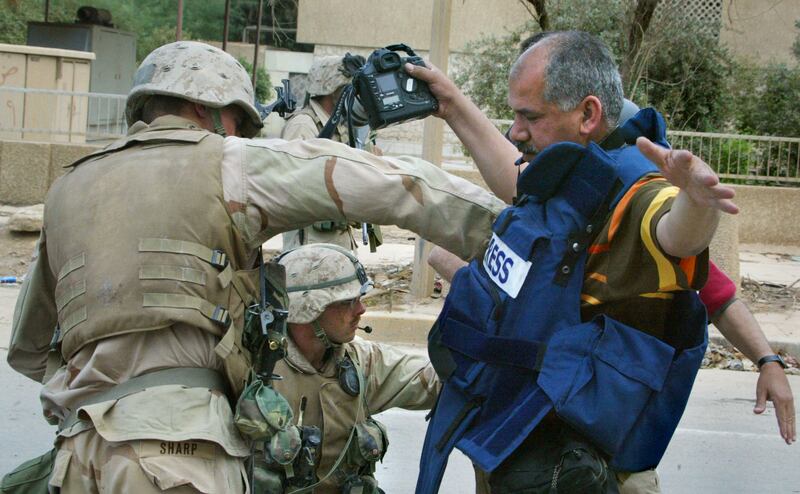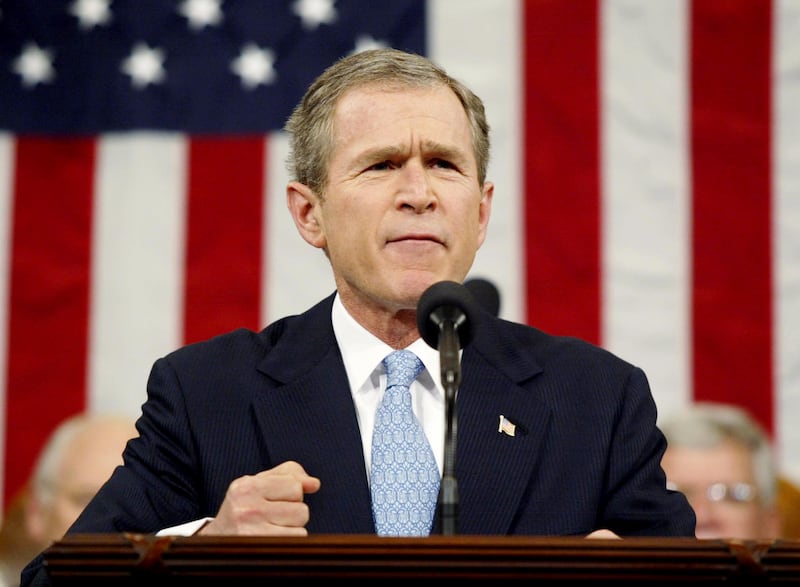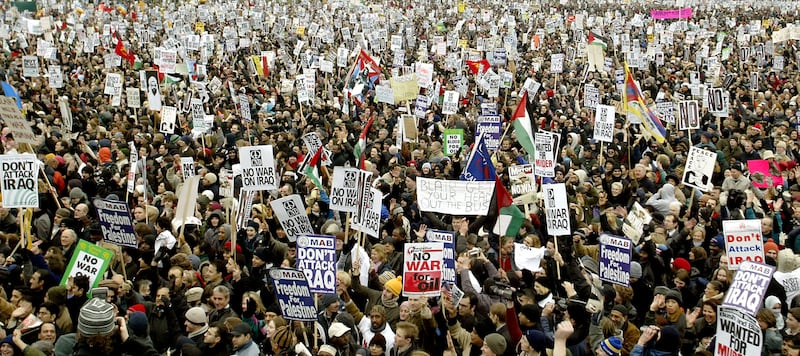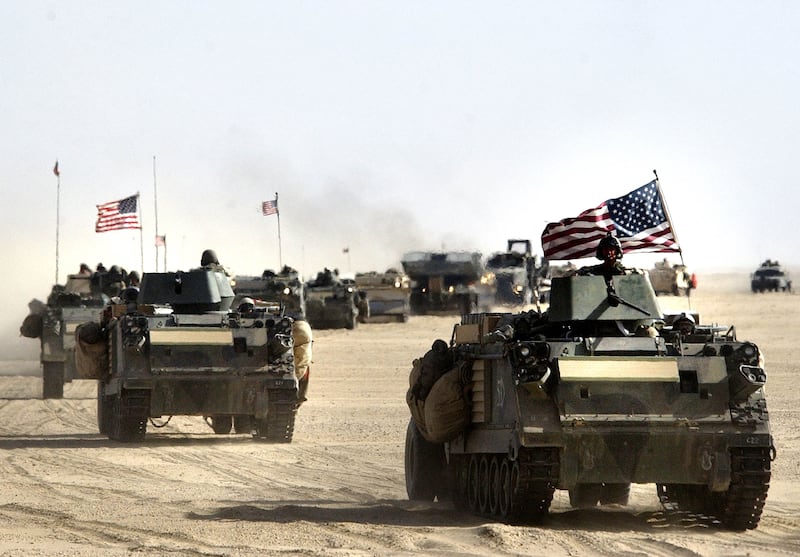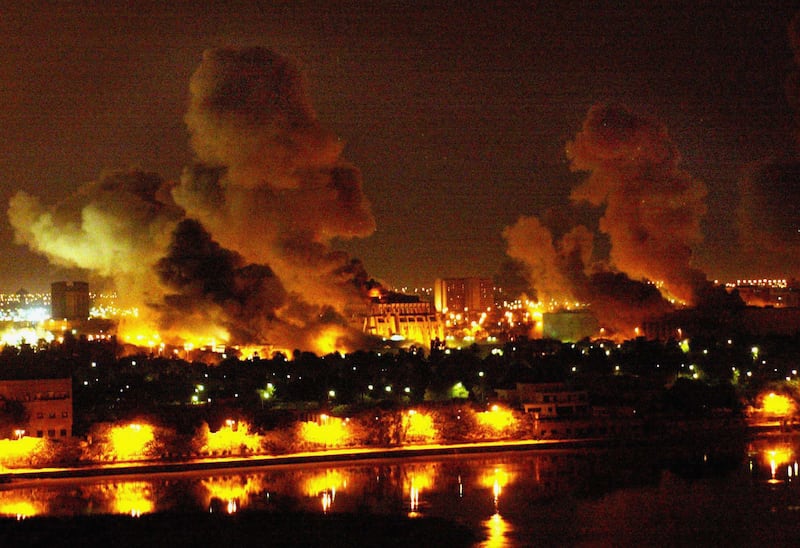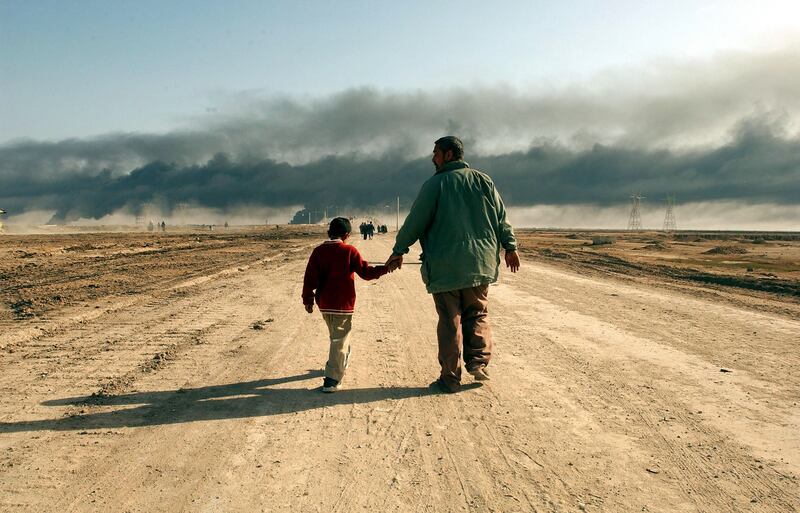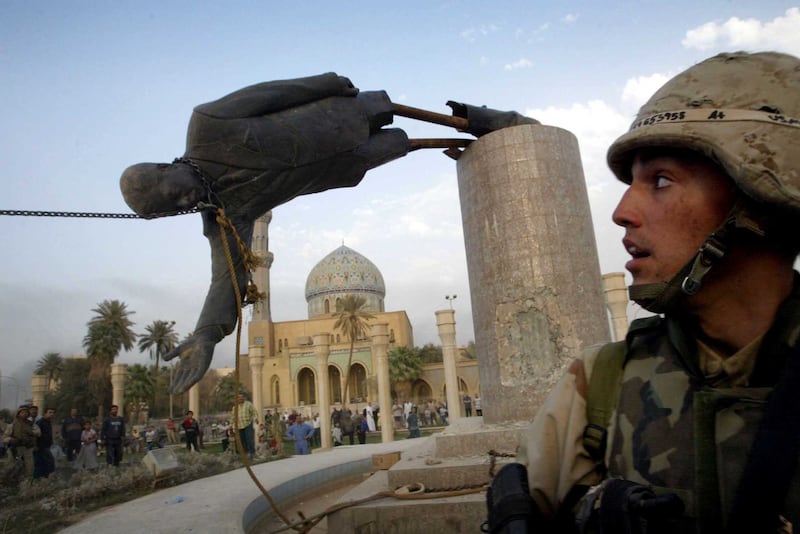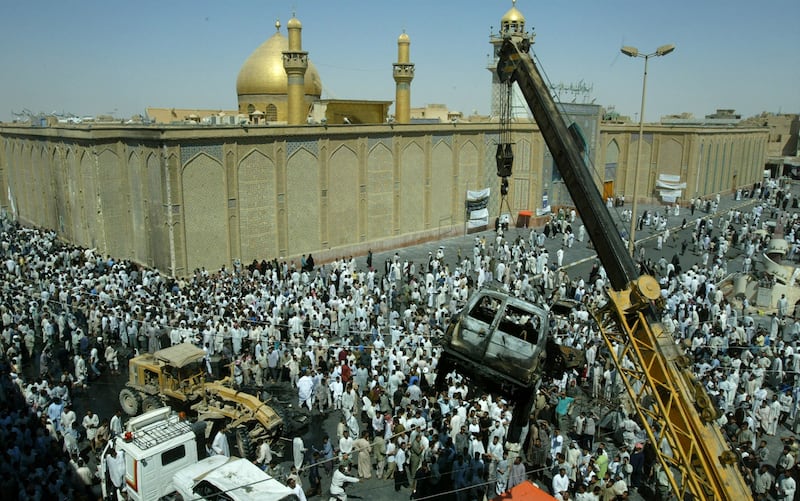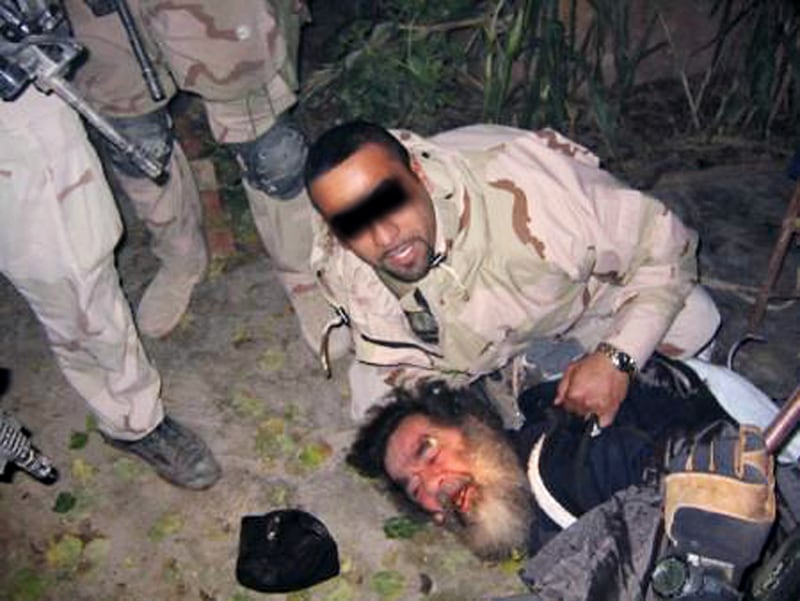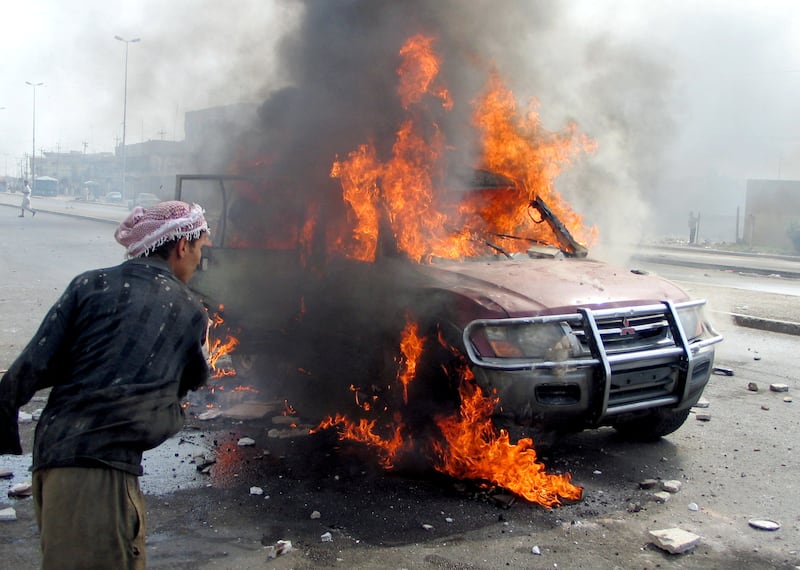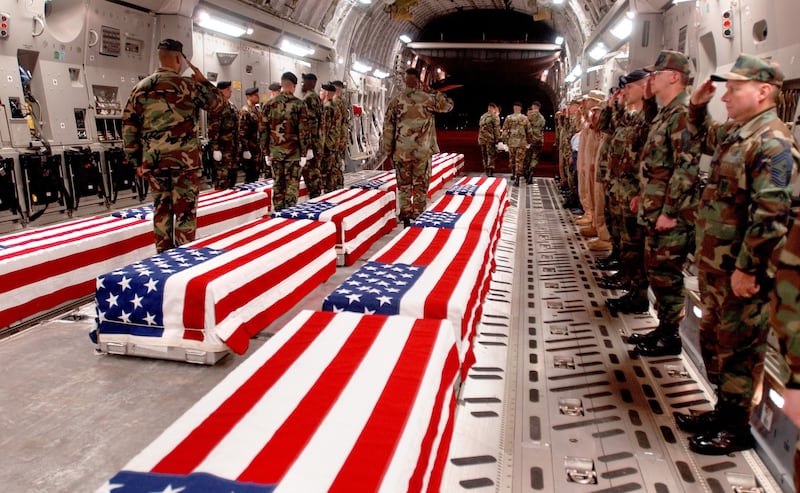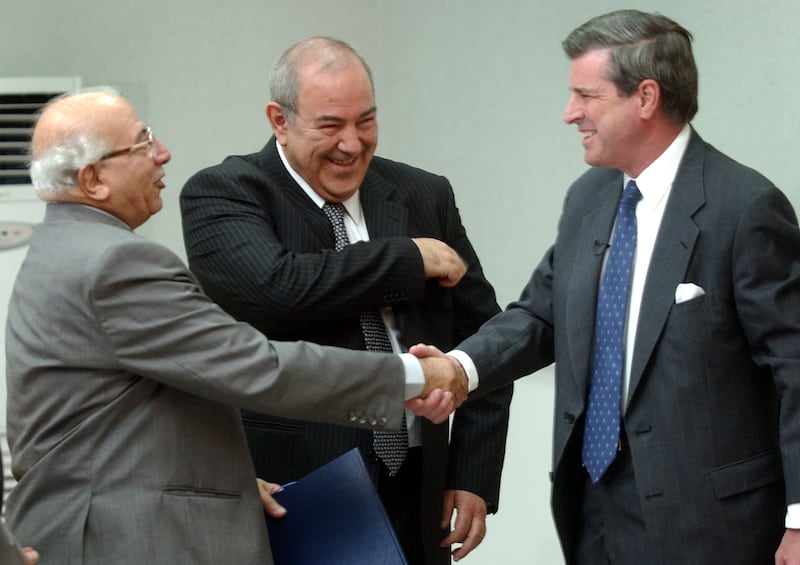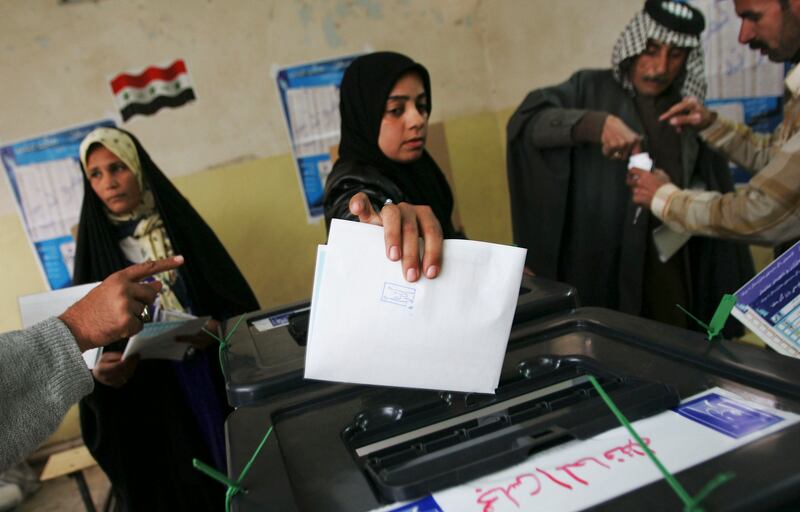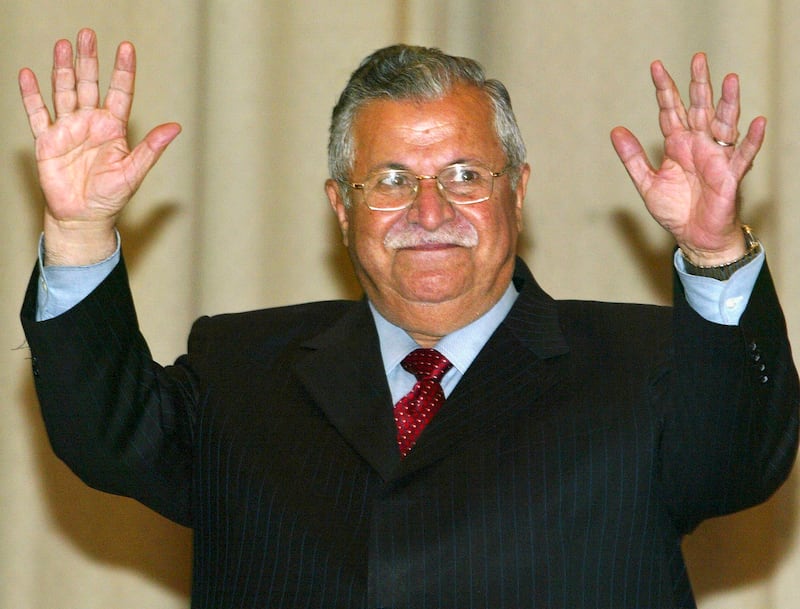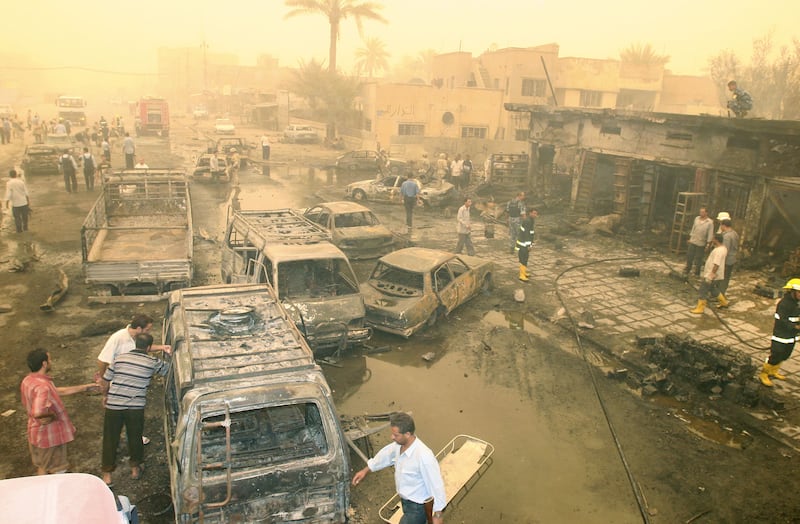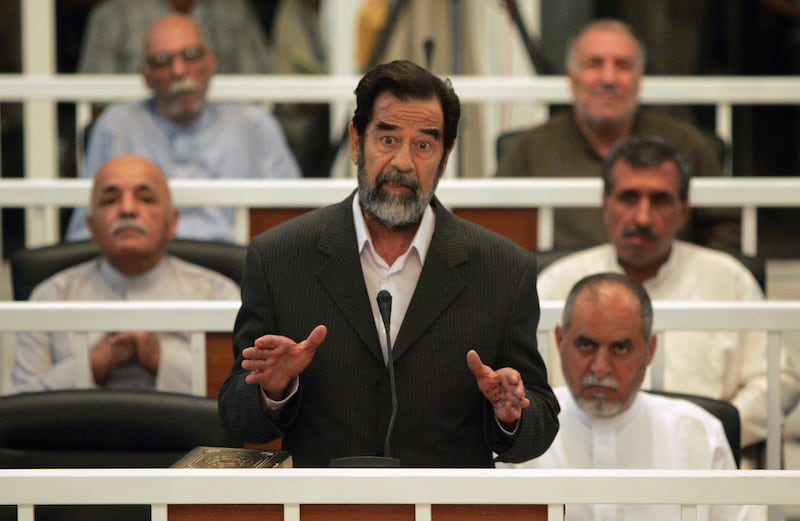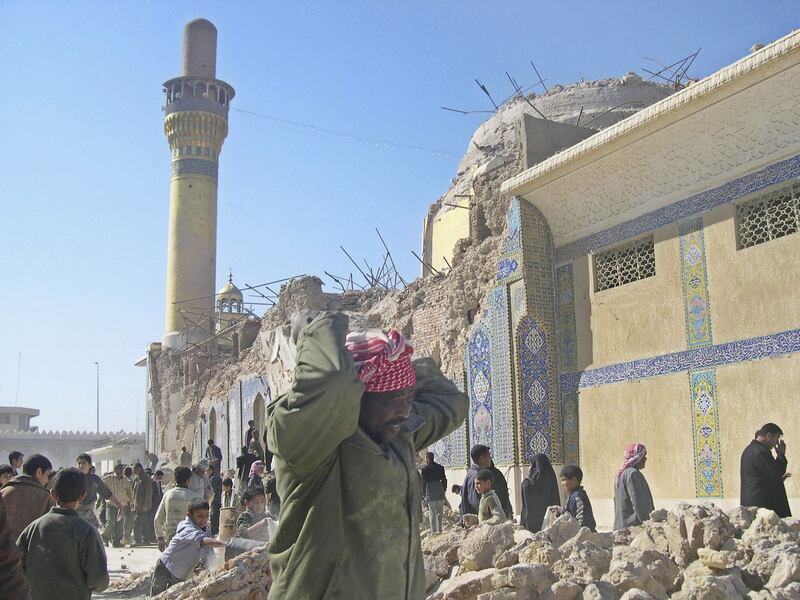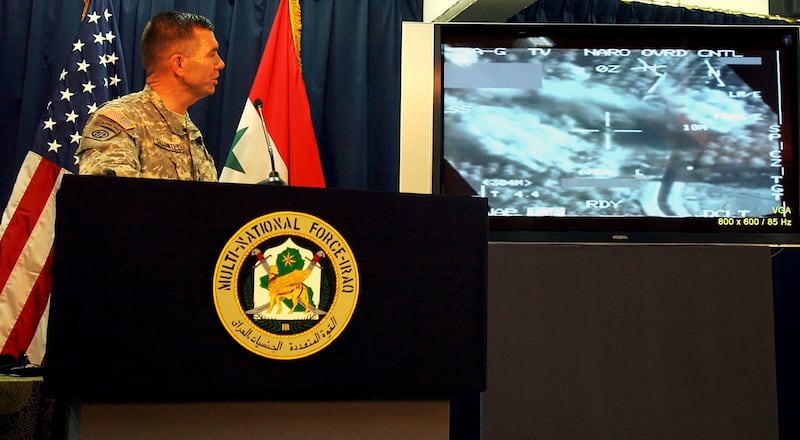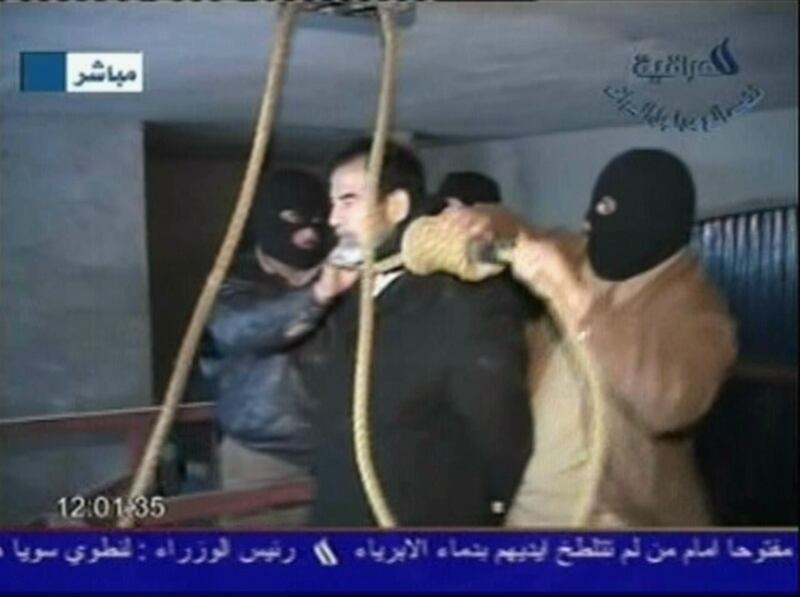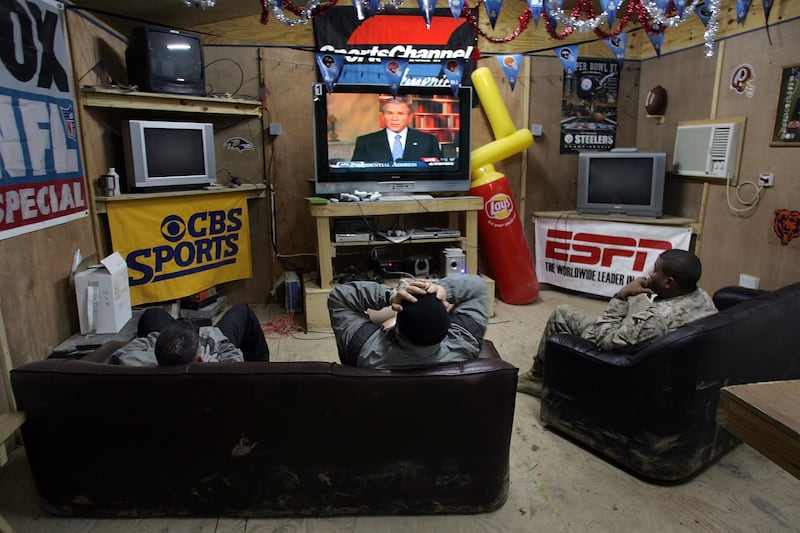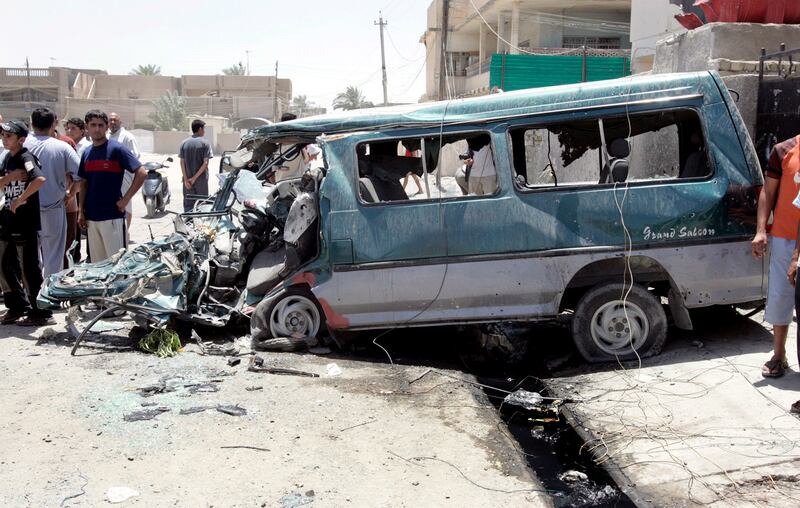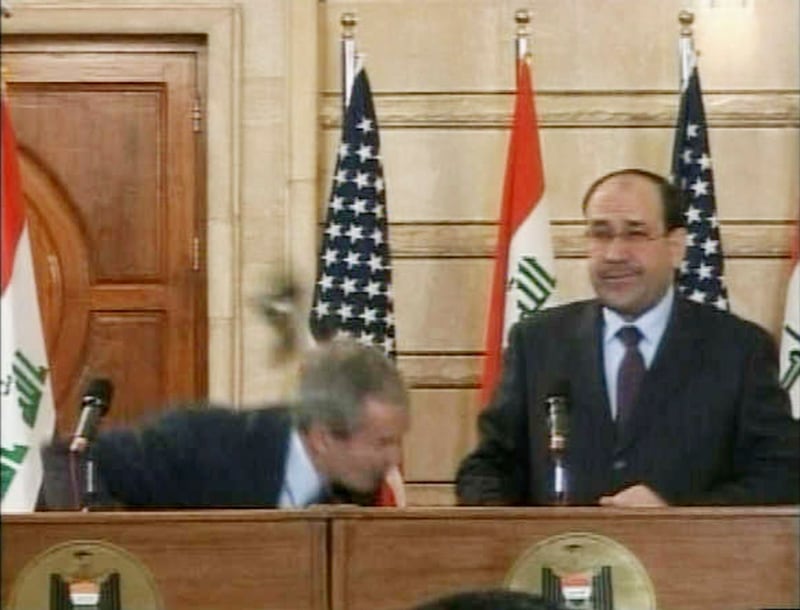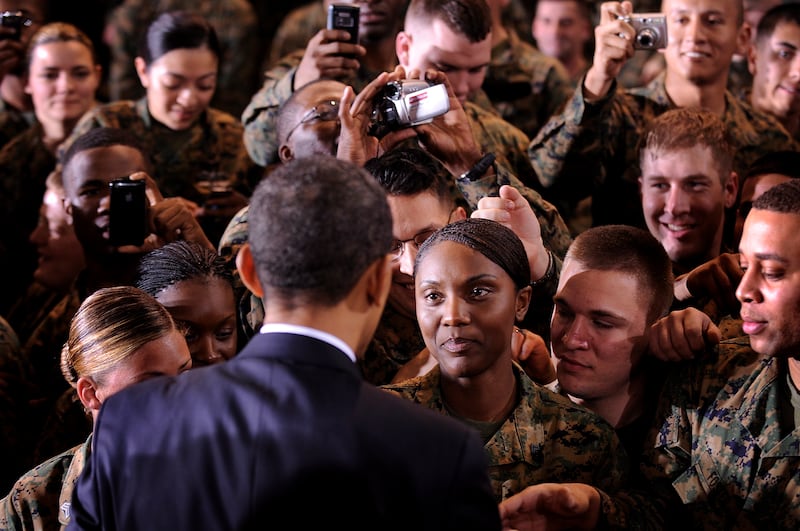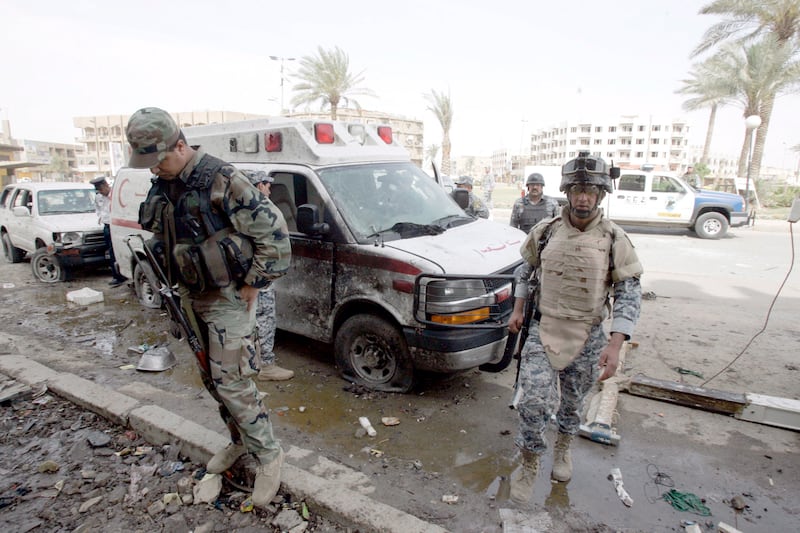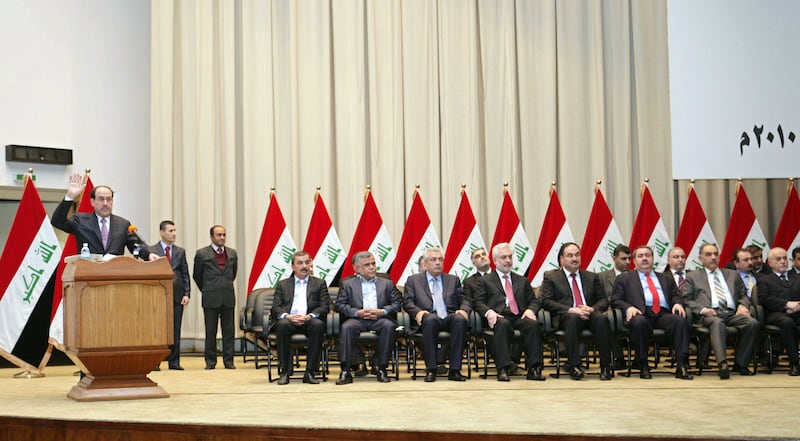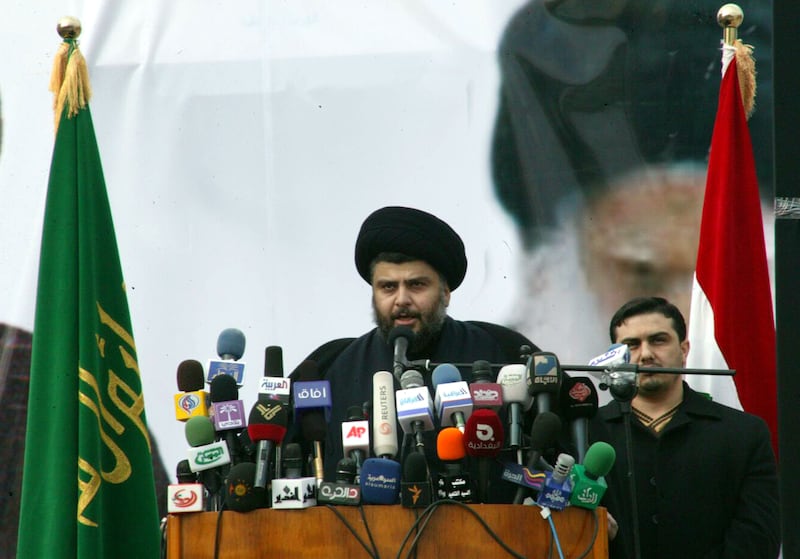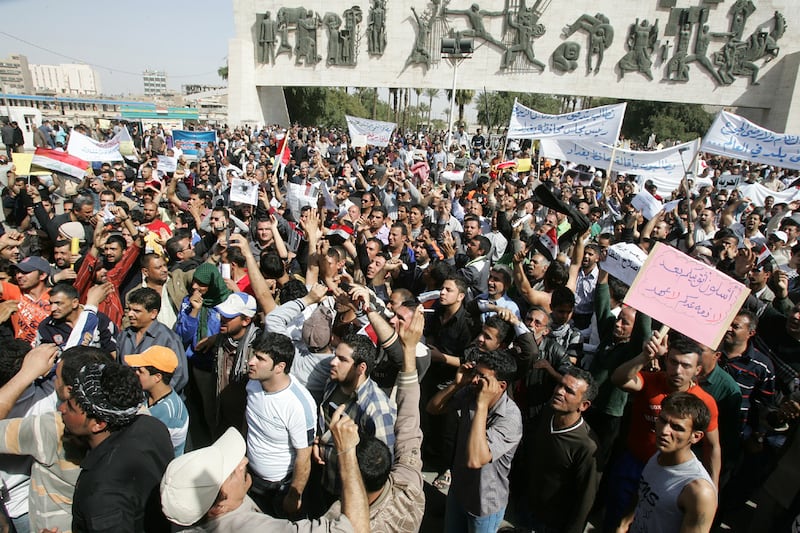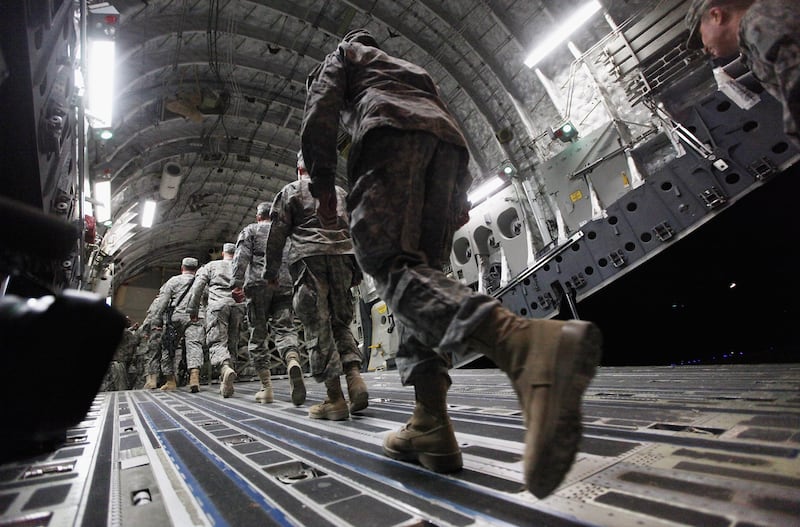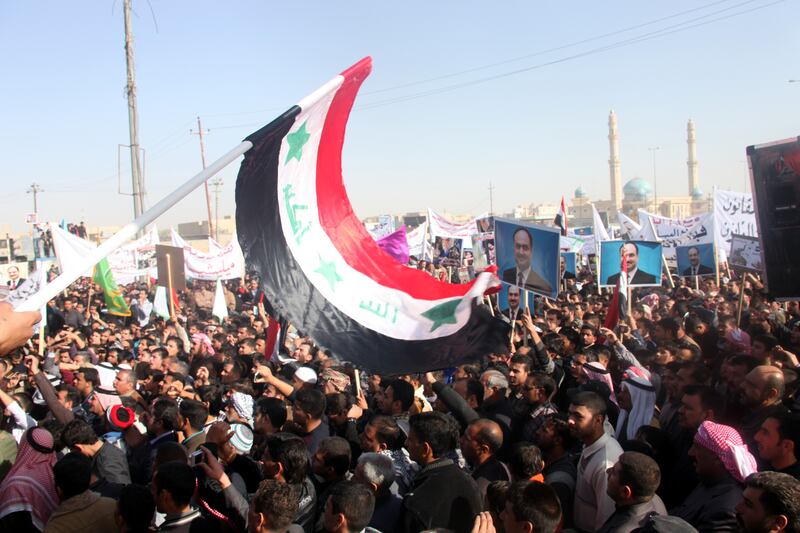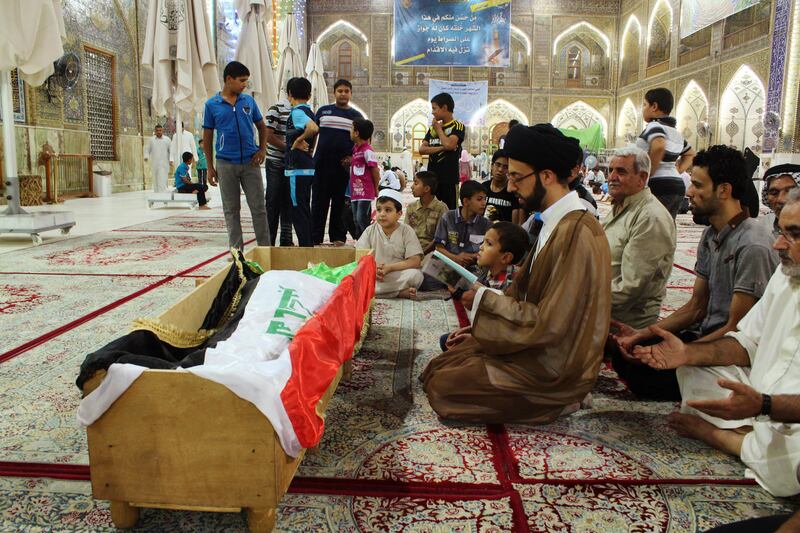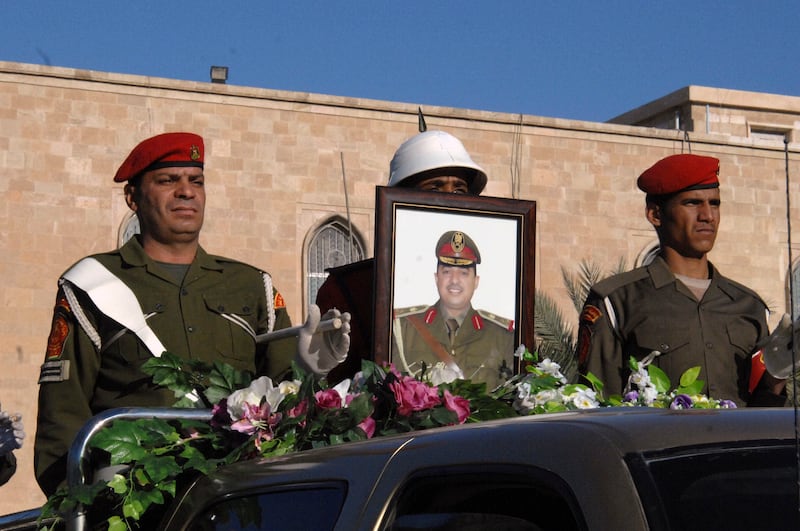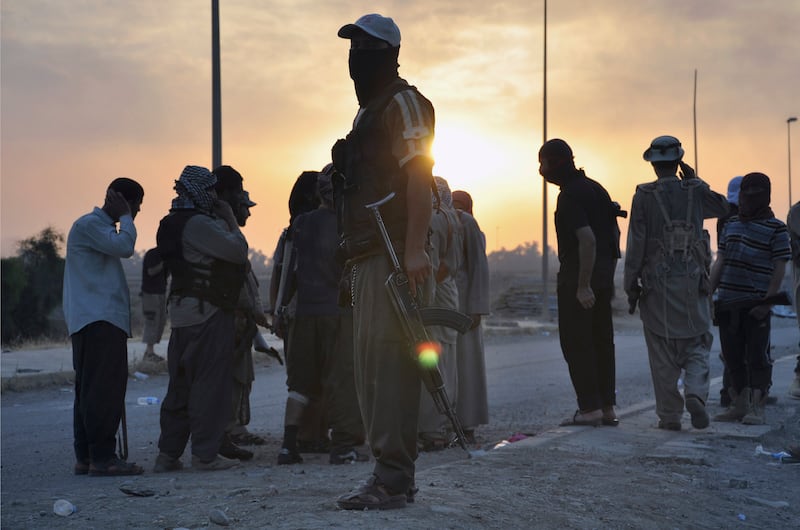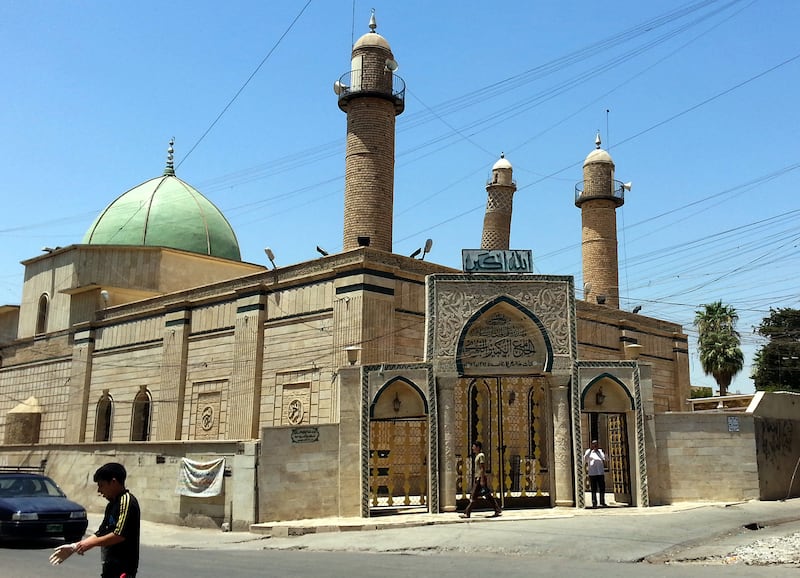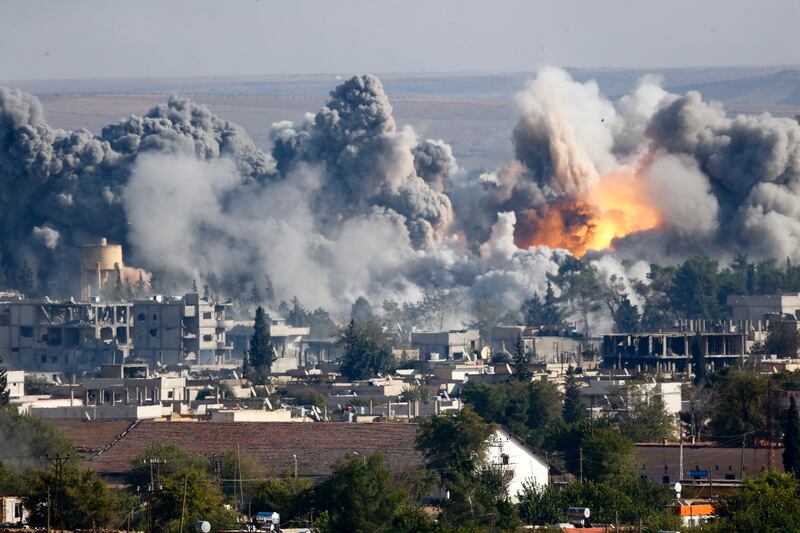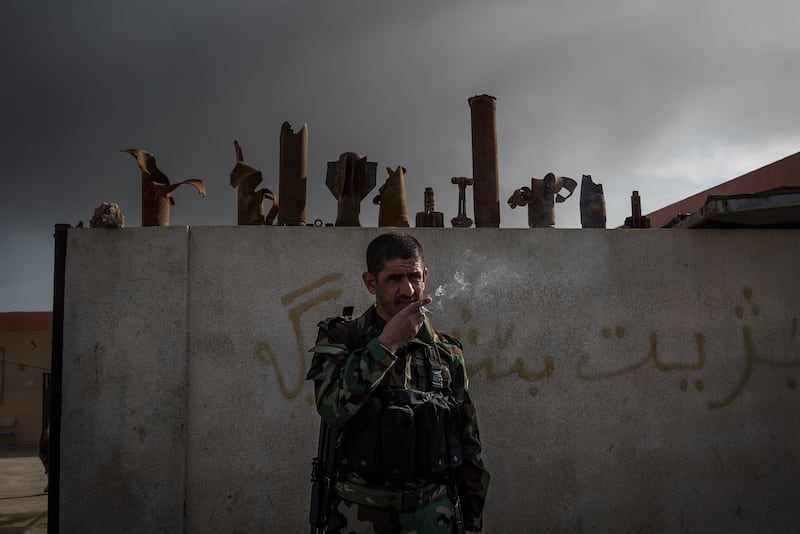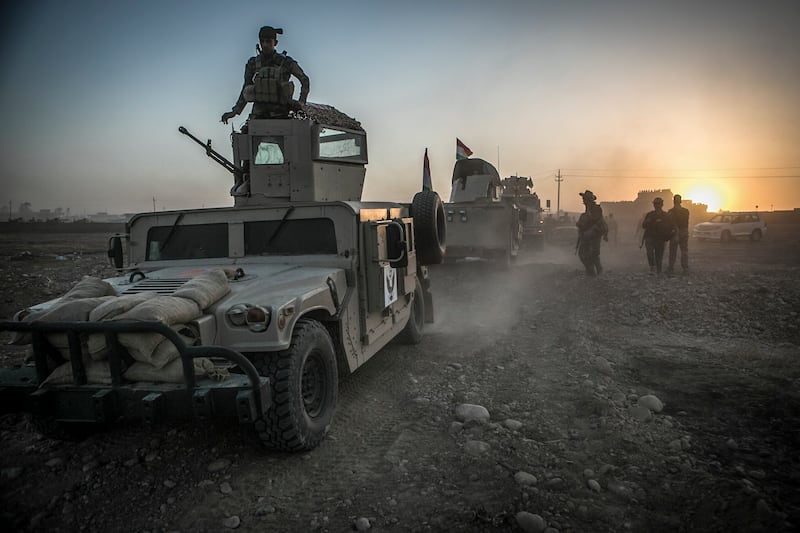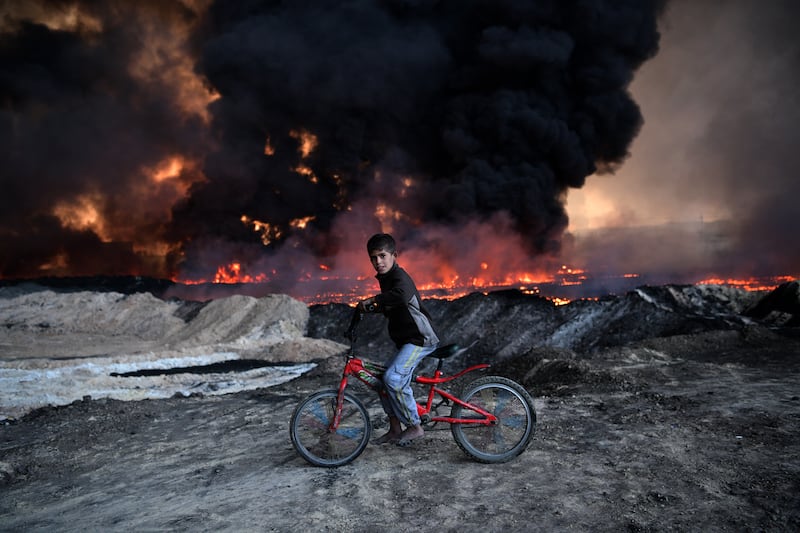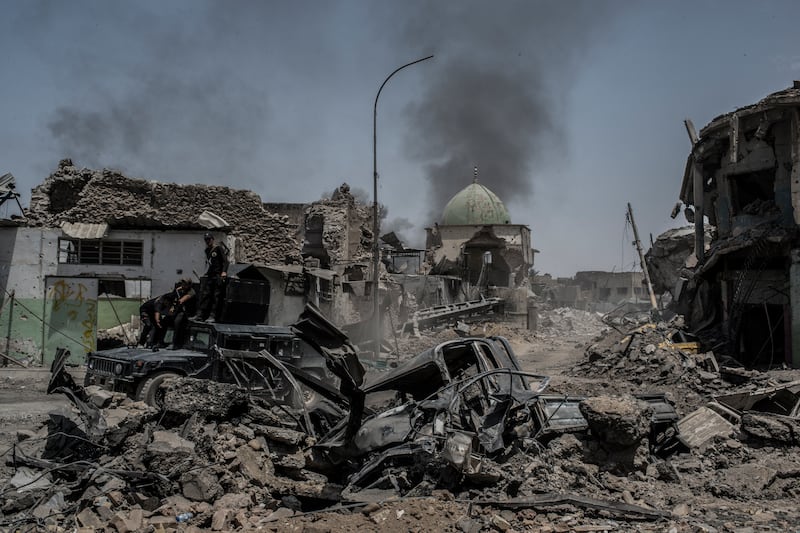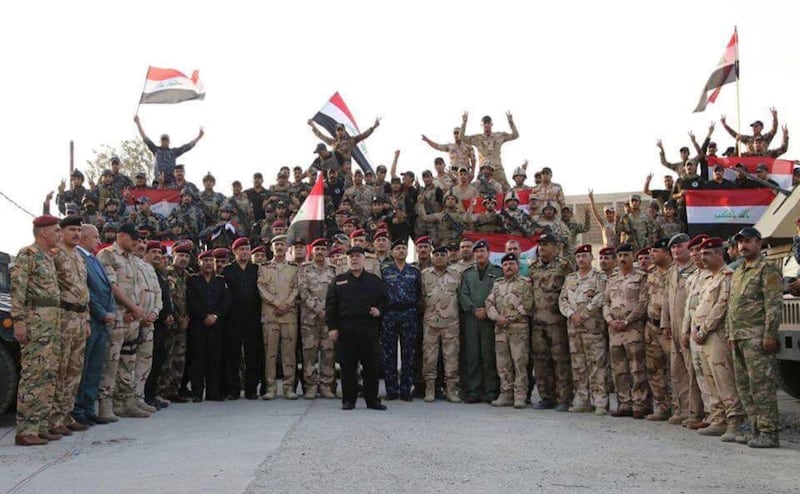On a dusty morning nearly 20 years ago, US troops marched on the streets of Ziyouna, a district in the east of Iraq's capital, Baghdad.
That day, April 9, 2003, made headlines around the world as a 12-metre bronze statue of dictator Saddam Hussein was destroyed by Iraqi civilians and American soldiers.
One man who saw it all happen at Baghdad's Firdos Square was Karim Sahib, 61, a photographer for the international news agency Agence France-Presse.
He now lives in Dubai and Mr Sahib relives those memories by looking at the photos he took during the invasion.
The city was full of American soldiers, their military vehicles, tanks and snipers, he says.
Mr Sahib says he was with a group of journalists who were happy to shake hands with the US soldiers but he was scared. He was Iraqi, they were foreigners and that made all the difference.
“The group contacted the US troops to provide security after Saddam Hussein was toppled, leaving the country without police or army,” he tells The National.
“I was born and brought up in Iraq and was taught Americans are the enemy. It was the first time to see them closely.
“The soldiers were suspicious of me because I wasn’t friendly. They pulled out their guns, took my cameras and knocked me to the ground.
“That was the first insult I faced after the regime change.”
________________________________
The Iraq War: a timeline of events — in pictures
________________________________
Mr Sahib saw the US soldiers pulling down Saddam's statue. He took photos of a group of Iraqis striking the head of the statue with their shoes.
“I laughed when I saw the pictures I took. Just four days before I'd taken photos of the same people kissing the hand of Saddam's statue.
“How can nations change their opinion and mood in just days?”
He says Saddam’s regime was toppled in a few hours and everybody was in hiding as they feared the US troops.
“One day, we had a country and a government; the second day there was nothing. It was surreal,” he says.
The 2003 war was followed by years of conflict and turmoil in which at least 210,000 civilians were killed and millions of Iraqis were forced to leave the country.
“Our life became a nightmare. With the US troops, insurgents and militias, Baghdad became a front line,” he says.
In 2004, Mr Sahib went to Fallujah city and saw empty checkpoints.
He saw a group of men and children killing four US contractors. Their burnt bodies were dragged through the city's streets and hung from a bridge across the Euphrates River.
“I didn’t know who they are. They carried a signboard saying ‘Fallujah is the cemetery for Americans’. I took pictures and returned,” he says.
“The US announced war on Fallujah after my pictures went viral.”
Mr Sahib says he was abducted by the Al Qaeda group in Fallujah for 45 minutes in 2005 as his family were leaving for Syria.
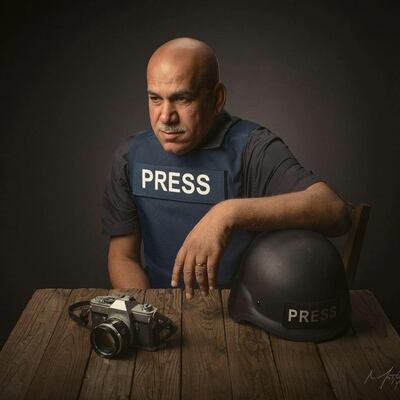
“I had to tell the truth through my pictures despite it being hard,” he says.
He walked to dangerous areas, recorded incidences of car bombs, took pictures of bodies and people grieving their loved ones. This haunted and traumatised him.
“The civil war was devastating to us. I was in the middle of battles between the militias and the Americans on a daily basis. Nightmares still haunt me even today,” he says
AFP moved Mr Sahib, his wife, four daughters and son to Paris. He went to Dubai with his family in 2006.
“I like being in the UAE as it is a safe country. But after so many years I need to return to Iraq and settle down,” he says.
“I think the region has become quiet now and conflicts are coming to an end.
“Iraq went through sectarian violence, but people have learnt lessons and the violence has subsided.”
He believes Iraq has the potential to become a great country and have a better future.
“We have the natural and human resources. Despite wars and conflicts, Iraq will rise again with the help of the younger generation and the Iraqis who lived and studied outside Iraq after 2003,” he says.
'I hope to open a nursery in Iraq someday'
Sally Al Shakarchi had graduated from Baghdad University when her family decided to go to Egypt three months before the invasion. She says her father knew that war was imminent.
On March 19, 2003, her father asked her to turn on the TV as the Iraq war had started.
“I was sitting all day in front of the TV watching the news. Sometimes we would stay up late to see how the war was progressing. The tension and anxiety can’t be described as I watched my city bombed,” Ms Al Shakarchi tells The National.
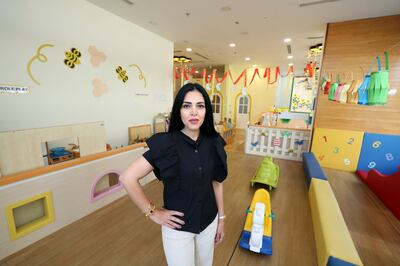
“The fall of Saddam’s statue at the end of the war will forever stay in my mind. We had feelings of joy and fear. Iraqis wanted to remove Saddam but someone else [US troops] did it.”
The family returned to Baghdad in June 2003 as her younger brother wanted to finish his college exams. Her father was hopeful that normality would return soon and that Iraq would be a modern country in five years.
“Unfortunately, things turned upside down and the country went into chaos after 2003. I remember my father would not allow us to step outside our house because of the fear and tension,” says Ms Al Shakarchi, who is now 43 and has two children.
“We decided to travel to Jordan in late 2003 and when I crossed the border I didn’t know that it would be the last time I was seeing my country.”
She married in 2006 and moved to Dubai.
“What hurts me is I barely remember Baghdad now. I don’t remember the streets or people's faces,” she says.
She opened a nursery in Sharjah and then later another branch in Dubai's City Walk. She also owns a cafe at Dubai University.
“The UAE is a great country to live in and helped me to develop my skills and become a businesswoman despite all odds and challenges,” she says.
After 20 years of the war, Ms Al Shakarchi dreams of opening a nursery in Iraq one day.
But sadly, she believes Iraq has no clear plan to develop even 20 years after the fall of Saddam’s regime.
“I don’t know where Iraq is going. They should let well-educated Iraqis return and rebuild the country,” she says.
'I saw my country being destroyed'
Yasir Waleed, 51, an Iraqi engineer, moved to the UAE in 1999.
He was safe in the Emirates when the war broke out but he says he saw everything on TV.
“I can’t forget these days. There was no communication with my family in Iraq and the media coverage of the war was confusing. I was shocked when Baghdad fell. My father called to say they were safe,” he says.
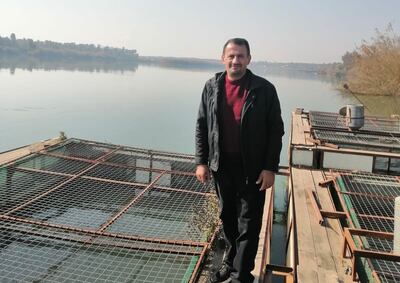
The war haunted him daily and he was so preoccupied with his grief that he cut the tip of his finger while using a machine on April 18, 2003.
“I was staring at the wall when the packing machine pulled my finger. It cut a piece of my finger. Whenever I look at my finger, I remember these horrible days,” he says.
Mr Waleed says he went to Iraq in January 2003, two months before March 19, 2003 — the day war was declared.
“There were no flights between the UAE and Iraq at that time so I travelled on a ship. I saw US Navy ships everywhere in the sea near Basra. I returned to the UAE in February and there were more ships.
“It was a scary scene and I knew my country was going to war.”
He says that he settled in the UAE to have a good life but wants to return to Iraq and start a business.
“My two children don’t want to return to Iraq, but I want to go back. I want to be with my family back home. In the end, I want to die and be buried in my country,” says Mr Waleed.
Mr Sahib, Ms Al Shakarchi and Mr Waleed are among the thousands of Iraqis who witnessed violence and were forced to leave their country. Twenty years on, they live in the hope to return home one day.
